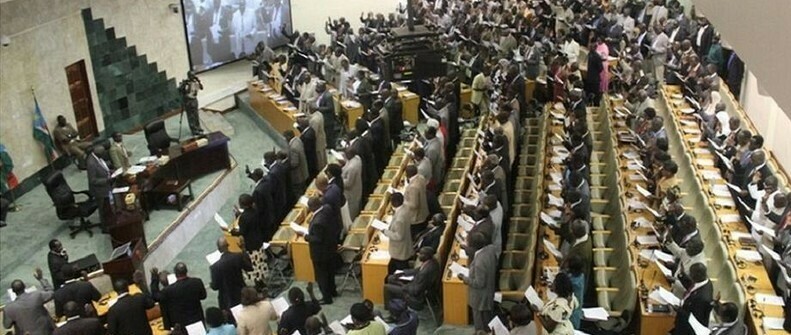The Transitional National Legislative Assembly in its regular sitting on Monday, chaired by First Deputy Speaker Oyet Nathaniel Pierino passed the National Police Service Act.
The bill was tabled to the August House by Simon Kun Pouch, Chairperson Specialized Committee of National Security and Public Order.
During the deliberations, the main sticking point was an article that states that a police officer can exercise his/her duties in good faith with limited liabilities.
Hon. George Angier from Warrap State, Twic County representing the Former Detainees (FDs) said that the proposed immunity given to the police in the bill is very dangerous as officers might commit a crime in the line of duty and go scot-free.
“This section is very dangerous because it gives it gives a free hand to the police to kill because the nature of immunities all the time is not substantive immunities, they are procedural immunities, and if you committed any offense you should be subject to the law,” he said.
Angier added, “So if a policeman kills a person while on duty according to Section 206 of the Penal Act. So, if you have given these immunities to the police then it is as if you are telling the police to go and kill our people and you won’t be asked.”
Meanwhile, Hon. Juol Nomngeek from Lakes state representing the SPLM-IO argued that the police are supposed to protect the lives of the people and therefore need immunity to perform some of their duties.
“When there is a problem the police are supposed to take care of our lives, and our properties under Article 155 clause 2. In this regard, the police will never go to consult the law that whether what am doing is right or wrong, it must go by the personal judgment if he believes it is right,” Nomngeek said.
After lengthy deliberation, Hon John Agany Deng representing SPLM in the TNLA and also the information committee chairperson raised a motion for the debate to be terminated and pass the bill to the fourth reading, which was adopted and later passed.
Agany said the bill will become law when the president appends his signature or it automatically becomes law after a month even without the president’s signature.




